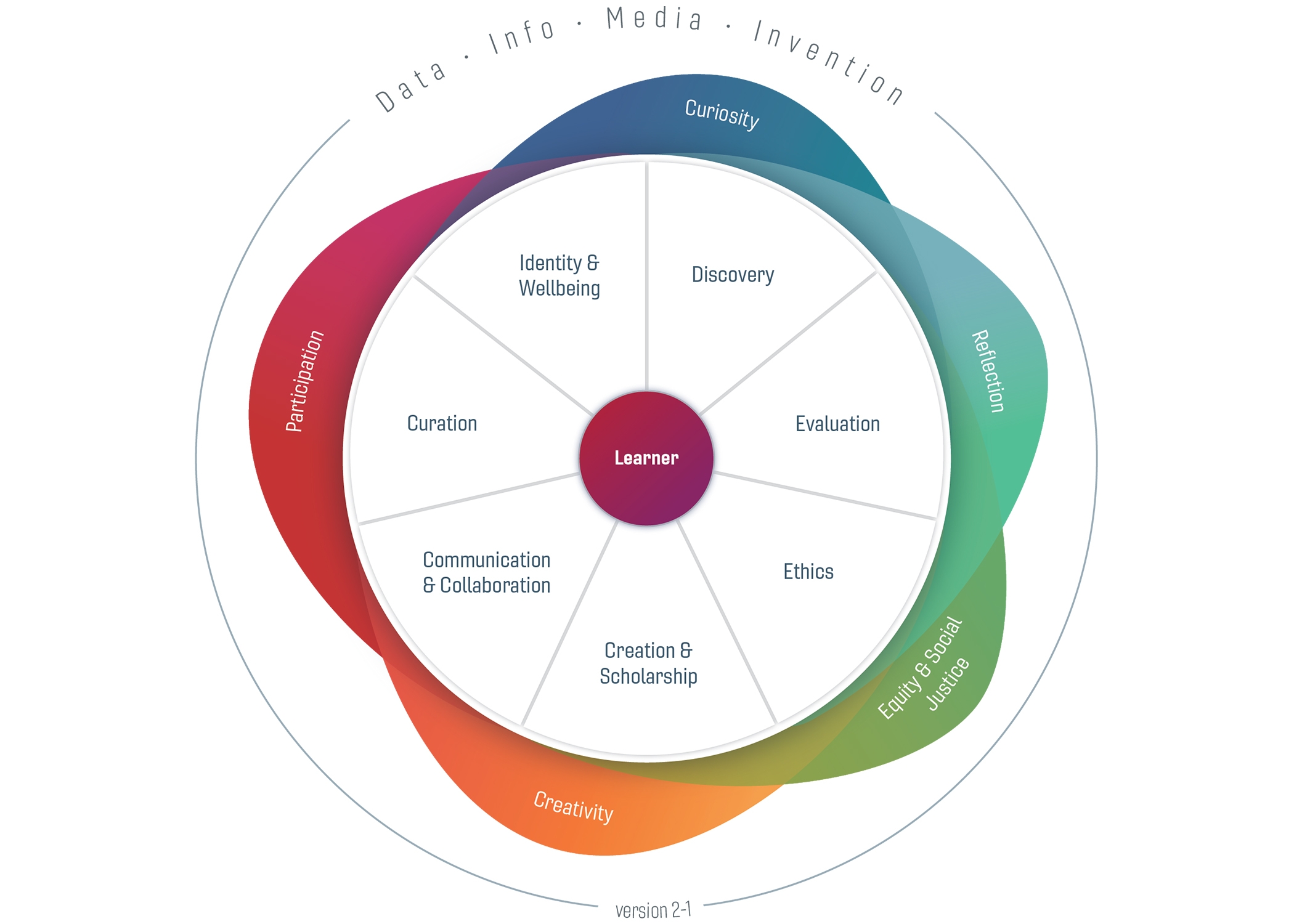Digital Literacy

Learning, creating, and collaborating in the digital world is increasingly complex. Through digital literacy initiatives, University Libraries seeks to empower our community of learners and researchers as they navigate and participate in digital environments. We welcome your collaboration and feedback.
What is Digital Literacy?
Digital literacy is a set of knowledge, skills, and attitudes that empower learners to engage with their digital lives. Digital literacy at Virginia Tech includes data, information, media, and invention literacies, which are comprised of key values built on core competencies. These competencies empower learners to become engaged global citizens in a digital world.
Expand each competency to reveal its learning outcomes.
- Identify personal learning needs and goals when engaging in digital environments
- Explain the impact of communication choices on online identity development, privacy, and security in a digital environment
- Recognize opportunities to manage personal data, privacy, and security in a digital environment
- Create and manage online identities that align to personal and professional values and goals
- Plan strategies to manage emotional and physical health in digital personal and professional settings
- Recognize the value of curiosity, exploration, and play in the discovery process
- Identify information needs and gaps in personal knowledge
- Locate and explore ideas from multiple viewpoints and perspectives
- Evaluate and adapt search strategies during the discovery process
- Critically analyze information/media/data to determine its relevance, accuracy, purpose, and bias based on contextual needs
- Recognize how algorithms and personalization may influence online information exposure
- Reflect on how personal viewpoints and values may influence engagement with data/information/media
- Evaluate platforms and tools to determine access, usability, and suitability
- Analyze differences in access, rights, and vulnerabilities of individuals and groups
- Distinguish between ethics, laws, and codified norms
- Identify rights and responsibilities when using, creating, and sharing digital data/information/media
- Apply relevant ethical principles in personal, professional, and academic contexts
- Adapt ethical principles when navigating new digital contexts
- Recognize that the creative process can involve a variety of emotional experiences
- Examine how format, genre, discipline, and audience can affect creative choices
- Practice an iterative design process towards specific goals
- Engage in troubleshooting while using tools
- Create original works and repurpose or remix existing works
- Apply communication conventions and norms in online communities
- Recognize ways power structures influence interactions, sharing, and collaboration
- Develop roles and shared expectations for collaboration when working in groups
- Use relevant tools and strategies for digitally mediated collaboration
- Analyze the effectiveness of team roles, collaborative tools, processes, and outcomes
- Select tools and format considering accessibility and compatibility over time
- Apply organizational principles to data/information/media
- Create a plan to preserve, maintain, and sunset data/information/media
- Assemble content for the purpose of meaning-making and sharing
Events
Online Identity Unpacked
Thursday, April 4, 2019
Where do your online and offline selves collide? When is your digital presence in and outside of your control? The answers to these questions are often complex. During the 2019 Digital Literacy Symposium, participants explored online identities through their many roles as students, educators, scholars, and more.
Dr. Bonnie Stewart's keynote, Bringing the Web Back: The Digital Literacies We Need Right Now, is available in VTechWorks.
New Toolkit
- Use the new Digital Literacy Framework Toolkit to integrate digital literacy into your work.
Learn More, Get Involved
- Attend a workshop.
- Read more about some of the models that are influencing our program: Jisc Model for Developing Students' Digital Literacy and Association of College & Research Libraries Framework for Information Literacy in Higher Education
Contact
- Julia Feerrar
- Email: feerrar@vt.edu


